[ad_1]
He began by exploring the sauna, constructed into the palatial lavatory of the resort’s presidential suite. Then the video blogger moved on to the eating room, the place a chef waited with a glistening steak. The following morning, he awoke to a lobster breakfast, which he ate cross-legged in mattress.
“In the present day’s invoice: 108,876 kuai,” or greater than $17,000, he mentioned after testing from the resort in Chengdu, China, waving his receipt on the digicam. “I slept away the equal of a number of iPhones,” he giggled.
The video was cheesy, certain. Ostentatious, positively. Now, it’s additionally a violation of Chinese language web rules.
The Chinese language authorities have declared battle on content material deemed to be “flaunting wealth,” amid sweeping calls by China’s chief, Xi Jinping, to fight inequality. As Mr. Xi positions himself for a 3rd time period, he has solid himself as a person of the folks, main a marketing campaign in opposition to entrenched pursuits.
Monetary regulators have cracked down on the nation’s tech giants, extracting pledges of loyalty and hefty donations. Tycoons have been detained on corruption accusations. And on-line, the authorities have ordered social media platforms to clean the vastly widespread movies that clarify the hole between the haves and have-nots.
The resort blogger amassed greater than 28 million followers on Douyin, the Chinese language model of TikTok, by posting movies the place he toured costly accommodations and sampled delicacies. However after being singled out by state media, he deleted these movies. His latest posts present him making an attempt comfort retailer snacks. (He didn’t reply to requests for remark.)
“We’ll strengthen our administration and improve the ability of our crackdown, to make web platforms really feel there’s a sword above their heads,” Zhang Yongjun, a senior official at China’s our on-line world administration, mentioned at a information convention this yr.
There isn’t a clear definition of what constitutes flaunting or wealth. Whereas officers have laid out a number of particular examples, similar to showcasing receipts or over-ordering meals, they’ve largely outlined a kind of “I do know it once I see it” rule.
“The usual is the impact the content material has,” Mr. Zhang mentioned. “Can the unfold of this content material encourage folks to be wholesome, bold and work more durable for a gorgeous life? Or does it cater to folks’s vulgar wishes?”
Douyin, the video platform, mentioned this yr that it had closed about 4,000 accounts in two months, together with ones that posted movies of individuals “scattering renminbi.” Xiaohongshu, an Instagram-like way of life app, introduced final month that it had flagged practically 9,000 wealth-flaunting posts from Could to October.
Inequality in China is huge. One p.c of Chinese language personal 31 p.c of the nation’s wealth, in keeping with Credit score Suisse Analysis Institute. The coronavirus pandemic additional uncovered disparities, because the wealthy returned to luxurious spending whereas different Chinese language continued to wrestle.
If unaddressed, the imbalance may pose a risk to the authorities’ near-total management, which rests on a promise of financial consolation. Exorbitant city housing costs and accelerating competitors for white-collar jobs have left many younger folks feeling that the “China Dream” is out of attain. Even Mr. Xi has referred to as the rich-poor hole a “main political matter” concerning the get together’s legitimacy.
However the marketing campaign in opposition to wealth flaunting, with its concentrate on tamping down the trimmings of wealth — not the wealth itself — underscores a broader query about how far Mr. Xi’s rhetoric will go. Regardless of his sweeping energy, Mr. Xi has but to embrace techniques that might show unpopular with the center class or elites, lots of whom have hyperlinks to the get together. Insurance policies similar to property and inheritance taxes have lengthy stalled, and labor rights stay weak.
“It’s extra making an attempt to appease public dissatisfaction from sure actors, with out — not less than at this second — actually significantly concerning anybody’s cake,” Zhang Jun, an assistant professor on the Metropolis College of Hong Kong who research Chinese language class politics, mentioned of the web crackdown.
Flamboyant materialist shows have lengthy discovered keen audiences on-line, with the Chinese language web no exception. In a viral development in 2018, Chinese language customers posted images of themselves splayed on the bottom surrounded by costly objects. An whole trade exists to assist customers look richer than they’re.
Final summer time, the authorities started paying consideration. In July 2020, the our on-line world administration introduced a plan to “completely clear up data that promotes unhealthy values similar to evaluating or flaunting wealth, extravagant amusement, and many others.”
The marketing campaign was spurred on by intensive state media protection, with Xinhua, the state information company, saying that wealth flaunting “rotted the social ambiance.” In latest weeks, it gained a contemporary spherical of consideration as Xiaohongshu, the app, invited customers to make movies denouncing wealth flaunting and promoted them to different viewers.
A kind of invited was Yi Yang, a hostel proprietor in Dujiangyan, a small metropolis in Sichuan Province. Final month, Ms. Yi, 35, shared a video, set to peaceable piano music, of her husband gardening and wrapping received tons whereas she described how they made their very own furnishings and grew their very own greens. She contrasted her way of life with folks bragging on-line about shopping for their first sports activities automobile or paying in full for sprawling villas.
“We’ve got desires, we’ve got flowers, we’ve got freedom,” she mentioned. “That is actual wealth.”
In an interview, Ms. Yi mentioned she frightened that younger folks watching flashy movies would develop unrealistic expectations. Once they failed to realize comparable materials wealth, she mentioned, “they’ll have doubts about society and about themselves.”
Others have mentioned considerations about wealth flaunting are overblown. On the social media platform Weibo, some customers mentioned the movies glad their curiosity or had been merely entertaining.
Nonetheless, regardless of the federal government’s robust rhetoric, it’s unclear how, and the way stringently, the anti-wealth flaunting marketing campaign is being enforced.
Douyin and Kuaishou had been every fined about $31,000 in October for permitting an commercial that the authorities mentioned promoted “extreme consumption.”
Xiaohongshu introduced final month that it had improved its algorithm for figuring out wealth flaunting however didn’t give specifics. The corporate didn’t reply to requests for remark.
However the apps are nonetheless awash in standing symbols. A seek for luxurious manufacturers on Xiaohongshu nonetheless turns up numerous outcomes. One blogger showcased her 121 pairs of designer sneakers. One other in contrast the deserves of her Fendi, Burberry and Louis Vuitton scarves.
In contrast with the full variety of posts on these websites, the quantity flagged is “mainly nothing,” famous Professor Zhang.
And even when all these posts had been to vanish, she added, little would change concerning the precise distribution of wealth. “Everyone knows, simply because individuals are not exhibiting footage of their cash, their vehicles, their purses and their jewellery, it doesn’t imply that they don’t have the cash.” However for some critics of wealth flaunting, concentrating on the flaunting, not the wealth, is probably the purpose.
Jassie Chen, 38, who was invited by Xiaohongshu to make a video in opposition to wealth flaunting, mentioned she had no downside with celebrities doing adverts for vogue homes, or her wealthy pals posting about glamorous holidays or carrying costly watches. They knew methods to be refined, mentioned Ms. Chen, a college lecturer in Beijing who usually blogs about profession recommendation.
Her principal grievance was with the poseurs — individuals who took images with luggage or vehicles that they didn’t really personal.
“Really, in my view,” she mentioned, “for some folks to have cash and different folks to not — that is very regular.”
[ad_2]


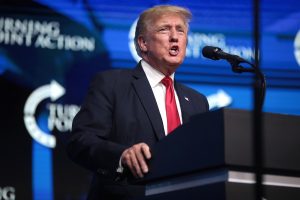
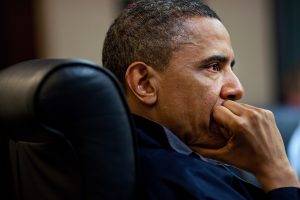
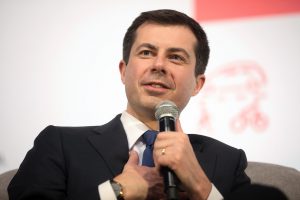
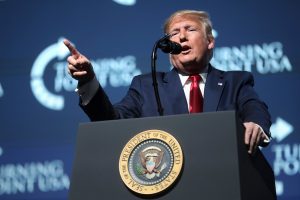
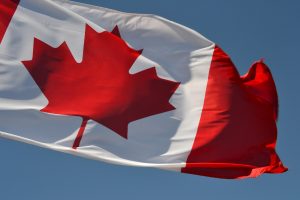


Leave a Reply